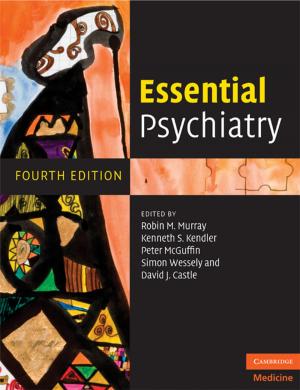Crisis of Authority
Politics, Trust, and Truth-Telling in Freud and Foucault
Nonfiction, Social & Cultural Studies, Political Science, Politics, History & Theory, Social Science| Author: | Nancy Luxon | ISBN: | 9781107424685 |
| Publisher: | Cambridge University Press | Publication: | September 23, 2013 |
| Imprint: | Cambridge University Press | Language: | English |
| Author: | Nancy Luxon |
| ISBN: | 9781107424685 |
| Publisher: | Cambridge University Press |
| Publication: | September 23, 2013 |
| Imprint: | Cambridge University Press |
| Language: | English |
Contemporary social and political theory has reached an impasse about a problem that had once seemed straightforward: how can individuals make ethical judgments about power and politics? Crisis of Authority analyzes the practices that bind authority, trust and truthfulness in contemporary theory and politics. Drawing on newly available archival materials, Nancy Luxon locates two models for such practices in Sigmund Freud's writings on psychoanalytic technique and Michel Foucault's unpublished lectures on the ancient ethical practices of 'fearless speech', or parrhesia. Luxon argues that the dynamics provoked by the figures of psychoanalyst and truth-teller are central to this process. Her account offers a more supple understanding of the modern ethical subject and new insights into political authority and authorship.
Contemporary social and political theory has reached an impasse about a problem that had once seemed straightforward: how can individuals make ethical judgments about power and politics? Crisis of Authority analyzes the practices that bind authority, trust and truthfulness in contemporary theory and politics. Drawing on newly available archival materials, Nancy Luxon locates two models for such practices in Sigmund Freud's writings on psychoanalytic technique and Michel Foucault's unpublished lectures on the ancient ethical practices of 'fearless speech', or parrhesia. Luxon argues that the dynamics provoked by the figures of psychoanalyst and truth-teller are central to this process. Her account offers a more supple understanding of the modern ethical subject and new insights into political authority and authorship.















